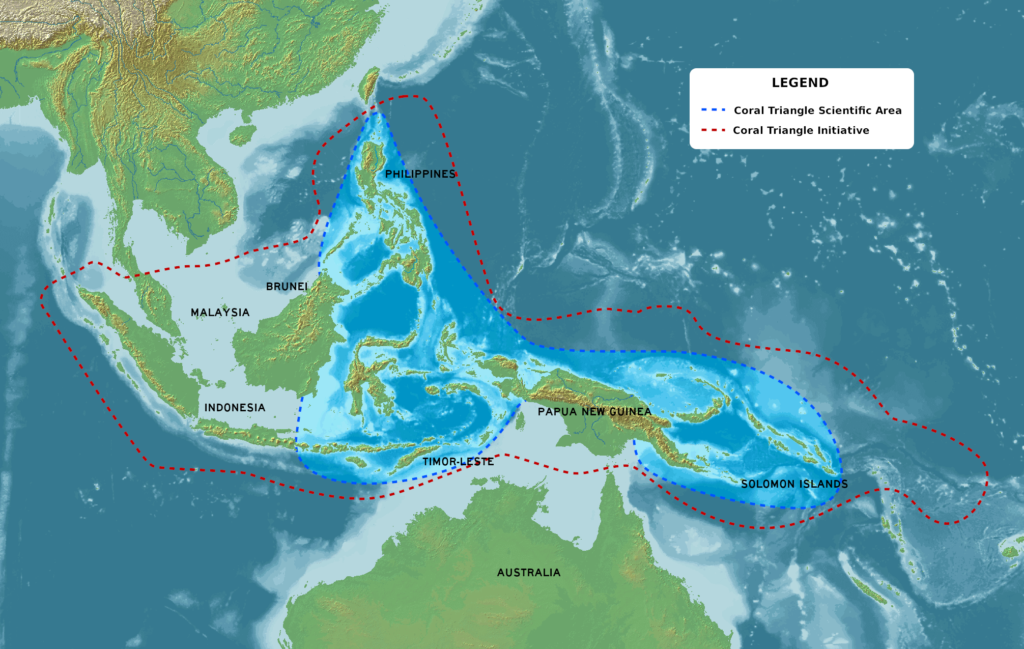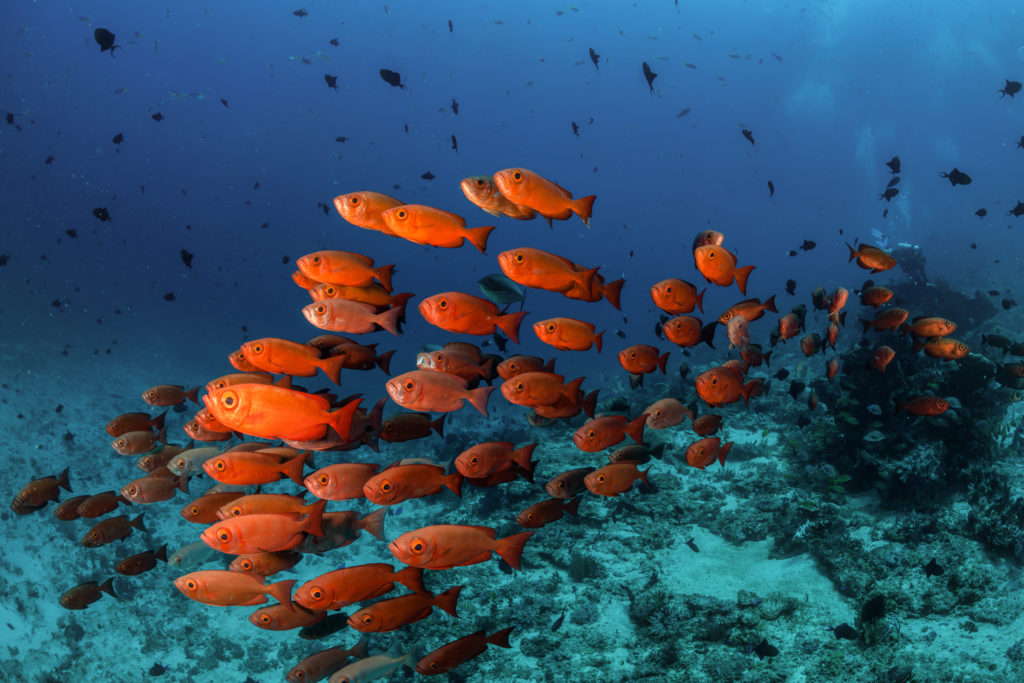

From salmon to scallops, seafood is a common staple in American diets. We consume over 5.3 billion pounds of seafood each year, but over 80 percent of our seafood is imported from around the world—much of it from Indonesia, the world’s second largest fish producer.
Indonesia is one of six countries whose waters lie within the Coral Triangle, an area in the western Pacific Ocean that is home to the highest diversity of reef fish and coral species in the world. Over 120 million people depend on these waters for everything from food to tourism to employment.
The Coral Triangle is under threat from overfishing and illegal fishing in addition to climate change, land-based pollution, and the wildlife trade—all of which is putting a strain on Indonesia’s economy and threatening the livelihoods and food security of Indonesians, including 12 million employed by the fisheries industry. In Indonesia these harmful fishing practices contribute to economic losses of over $10 billion each year, with $80 billion lost due to poor fisheries management.
Indonesia is one of six countries whose waters lie within the Coral Triangle, an area in the western Pacific Ocean that is under threat from overfishing and illegal fishing as well as climate change, land-based pollution, and the wildlife trade—all of which is putting a strain on Indonesia’s economy and threatening the livelihoods and food security of Indonesians.

Overfishing and other destructive actions in these waters have significant implications for the region—driving food and economic insecurity and exacerbating the impacts of climate change. That’s why the U.S. Agency for International Development (USAID) partnered with Tetra Tech, the Wildlife Conservation Society (WCS), and other international conservation organizations on the Sustainable Ecosystems Advanced (USAID SEA) project, a five-year project to protect seafood supplies and create more sustainable fisheries in Indonesia’s most impacted provinces of West Papua, Maluku, and North Maluku, which all fall within the same Fisheries Management Area.
Started in 2016, the project has also supported local and national governments to grow and strengthen a network of protected areas, focusing on 16 marine protected areas encompassing over 1 million hectares (ha), which will contribute toward the national goal of protecting 32.5 million ha by 2030.
Most unlawful and destructive fishing in Indonesia occurs at the community level, so the USAID SEA project worked to identify locals to join community surveillance groups, or Pokmaswas, across West Papua, Maluku, and North Maluku to raise awareness about marine conservation, educate others in their community about these issues, and report harmful practices to local authorities.
One such Pokmaswas leader, Amir Mukadar from Morotai Island, became one of the project’s SEA Champions. His use of destructive fishing practices changed when he learned they drove down fish supplies and harmed his coastal community. “Now, it is different,” he said. “After I finish work in Daruba Port, I immediately take my boat then circle the Morotai waters. I want to protect the sea from destructive fishing.”
Alongside the Government of Indonesia, the USAID SEA project has strengthened the relationship between local communities and law enforcement, empowering them to work together to step up surveillance and spread the message about the importance of marine conservation for their livelihoods and food security.
By making communities aware of these issues, as well the rules and regulations, the USAID SEA project is helping to tackle the underlying causes and drivers of illegal fishing, while also helping the Government of Indonesia reform its law enforcement measures and apply penalties and prosecution for further deterrence.
The USAID SEA project is helping to tackle the root causes and drivers of illegal fishing in communities across Indonesia, while also helping the Government of Indonesia reform its law enforcement measures and apply penalties and prosecution for further deterrence.

As the USAID SEA project finishes in early 2021, there is still more work to be done to conserve global fisheries and protect the people who depend on them, as about 34 percent of global fish stocks are overfished and an additional 58 percent are reaching their maximum sustainable limits. History has shown us that food scarcity is a catalyst for conflict—and overfishing and other destructive actions have the potential to topple food and economic security while also undermining conservation efforts.
By building a strong partnership among key stakeholders—including government agencies, community groups and NGOs—the USAID SEA project has established a solid foundation for reducing threats to Indonesia’s fisheries and allowing fish stocks to replenish. Stopping these illegal fishing practices is not only a win for communities across Indonesia and around the world, but for tackling some of the root causes of global instability— from hunger and conflict, to national disasters, international crime and corrupt trade practices—that ultimately undermine America’s own security and economic interests.
Alongside joint efforts to implement projects on the ground, WCS and its partners at Conservation International, The Nature Conservancy, and World Wildlife Fund are also driving home these important connections to America’s own interests through their Natural Security Campaign—and making the case for why U.S. foreign assistance is so important for America’s national security interests as well as regional stability.
Notifications